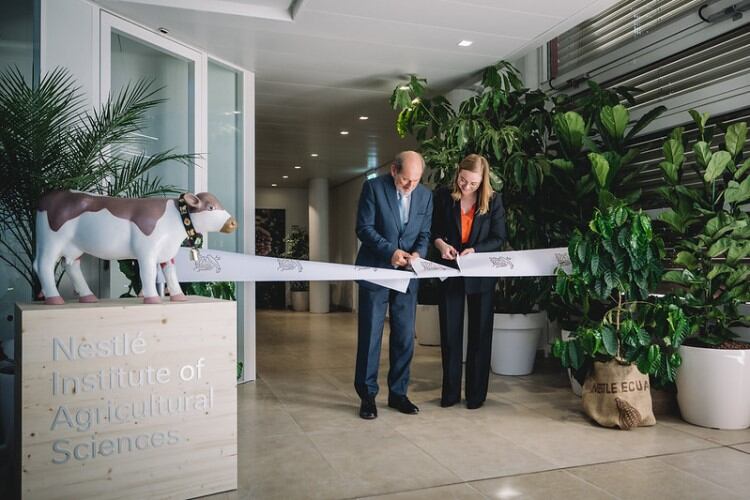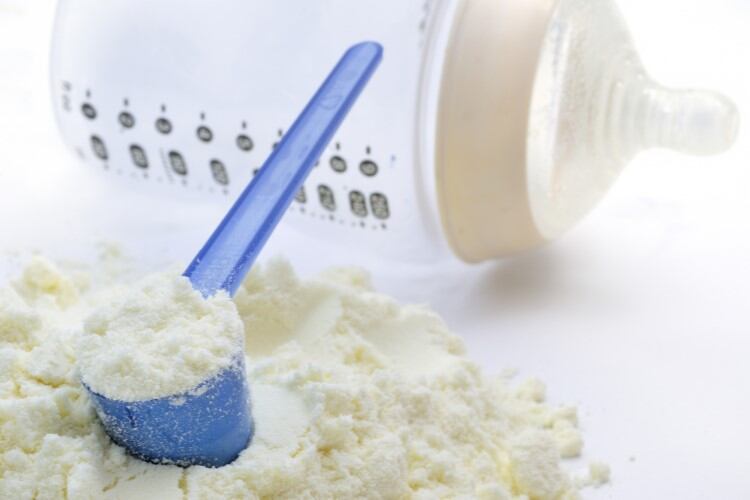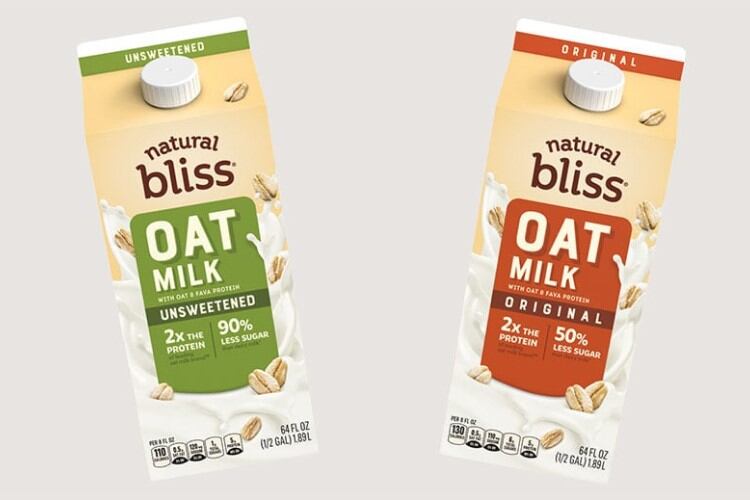The institute, which was officially opened on May 3 in Lausanne, Switzerland, forms part of the company’s research capabilities across food safety, health and material science and packaging. In addition to the Swiss facilities, the institute incorporates an existing plant science research unit in France as well as farms based in Ecuador, Côte d'Ivoire and Thailand, and partnerships with research farms.
In addition to work across coffee, cocoa and plant-based alternatives, Nestlé will focus its resources on exploring ‘novel approaches in dairy farming’, particularly around feed supplements, manure management and cattle nutrition, in a bid to further reduce emissions from dairy and livestock ingredients.
“The institute works in close partnership with external partners including farmers, universities, research organizations, start-ups, and industry partners,” a Nestlé spokesperson told us. “It focuses on screening and assessing the scientific evidence of commercially-available solutions and other novel approaches including for methane-reducing feed supplements, manure management and improved diet, which could be of interest to Nestlé.”
The company’s scientific teams are exploring how these solutions can be used in combination with other approaches, such as efficient dairy herd and farm management. “Once we have selected technologies and approaches, we look at the efficacy and safety, including potential reductions in emissions, impacts on quantity and nutritional quality of the milk, as well as cost,” the spokesperson told us. “The most promising solutions are further validated and tested on research farms, including in terms of their practicability on farm or consumer acceptance, before considering a broader upscale.”
“In the longer term, we are also working to enhance the understanding of the rumen microbiome which is the principal source of methane emissions.”
Asked what have been some of the most efficient approaches to reducing emissions from dairy farming as identified by Nestlé, the spokesperson suggested that good farm and dairy herd management practices are still paramount to achieving strong sustainability results. “Well-known good farming practices such as management of the dairy herd, as well as efficient farm management, can often reduce total emissions by up to 30%, with the biggest impact occurring on smallholder farms.”
‘We need to go further’
Dairy and livestock ingredients are the CPG giant’s largest single source of emissions. Of these, enteric methane is responsible for 50%, and Nestlé says interventions it has undertaken so far include various projects related to feed and herd management, farm energy sources and efficiency and manure management.
“However, we need to go further as part of our net-zero roadmap,” the company spokesperson said. “Therefore, the institute leverages available company knowledge, while also collaborating with external partners and participating in various industry-led initiatives to discover novel science-based solutions and technologies to reduce carbon emissions in dairy at farm level.”
According to Nestlé’s net-zero roadmap, the company is planning to reduce emissions from dairy and livestock ingredient sourcing to 29.3m tons of CO2equivalent by 2030 – down from a 2018 baseline of 34.2m tons. Without interventions, greenhouse gas emissions from dairy and livestock ingredients could be in excess of 50m tons in 2030, according to the company’s own projections. Nestlé also estimates that to reach its 2030 target, the firm could reduce CO2equivalent emissions by around 8.4m tons through better herd management; soil sequestration and nutritional changes could shave off 3.2m tons each; and sustainable feed has a scope to cut further 2.7m tons.
Feed supplement innovation was listed among the key strategies as Nestlé unveiled its new research institute, although the company maintains that ‘a combination of approaches’ including manure management and nutrition improvements, will be key to reducing enteric methane emissions in the coming decades.
As part of its research work, the institute will work globally with over 40 research and pilot farms across many raw materials, including dairy. “This enables us to validate and test the most promising solutions, before considering a broader upscale,” the company spokesperson said. “We are now exploring novel science-based solutions and technologies for methane-reducing feed supplements, manure management and improved diet, that can be used in combination with good farming practices, to further reduce carbon emissions in dairy at farm level.
“The different approaches and solutions need to be carefully assessed, while ensuring that they are operationally feasible according to the farm type and also that they are economically-viable for farmers.”




